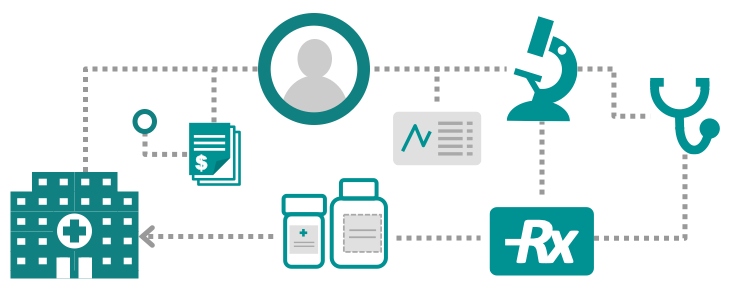Medical Networks
Medical networks are designed to improve the quality of care provided to patients by fostering collaboration and communication among healthcare providers. This collaboration can help to ensure that patients receive the most appropriate and effective care possible, as providers work together to develop treatment plans and monitor patients' progress over time.

It may also offer a range of other benefits to patients, such as access to a wider range of healthcare services, improved access to specialists, and increased convenience through shared electronic medical records and other technology-enabled tools.
Overall, medical networks play an important role in the healthcare industry by helping to improve the quality of care provided to patients and promoting better health outcomes.
Why Medical Networks
In a private sector medical market, medical networks can be particularly important for key reasons:
- Improved Quality of Care: Medical networks can improve the quality of care provided to patients by facilitating collaboration and communication among healthcare providers. By working together to develop treatment plans and monitor patients' progress over time, providers can ensure that patients receive the most appropriate and effective care possible.
- Cost Savings: Medical networks can help to reduce healthcare costs by promoting preventive care, reducing hospitalizations and emergency room visits, and coordinating care to avoid unnecessary duplication of services. This can be especially important in a private sector medical market, where providers may be competing for patients and looking for ways to offer high-quality care at a lower cost.
- Increased Access to Care: Medical networks can help to improve access to care by offering a wider range of healthcare services, such as access to specialists and diagnostic tests, in one location. This can be particularly important for patients who live in rural or underserved areas, where access to healthcare services may be limited.
- Better Patient Experience: Medical networks can also help to improve the patient experience by providing more personalized and coordinated care, reducing wait times, and improving access to information about healthcare services.
Medical networks can be an important tool for improving the quality, efficiency, and accessibility of healthcare services in a private sector medical market. By working together to provide coordinated care, healthcare providers can offer patients better health outcomes and a more satisfying experience.
Software Systems
Medical network software is used by healthcare providers to manage their operations and patient care.
It includes a variety of features and functionalities, such as electronic health records (EHRs), appointment scheduling, billing and payment processing, inventory management, and patient portal access. It is designed and customized to streamline workflows and improve communication and collaboration among healthcare providers, ultimately leading to better patient outcomes.
In addition we provide advanced analytics capabilities, such as data mining and predictive modeling, which can help to identify trends and patterns in patient data, optimize treatment plans, and improve overall operational efficiency.
Back
